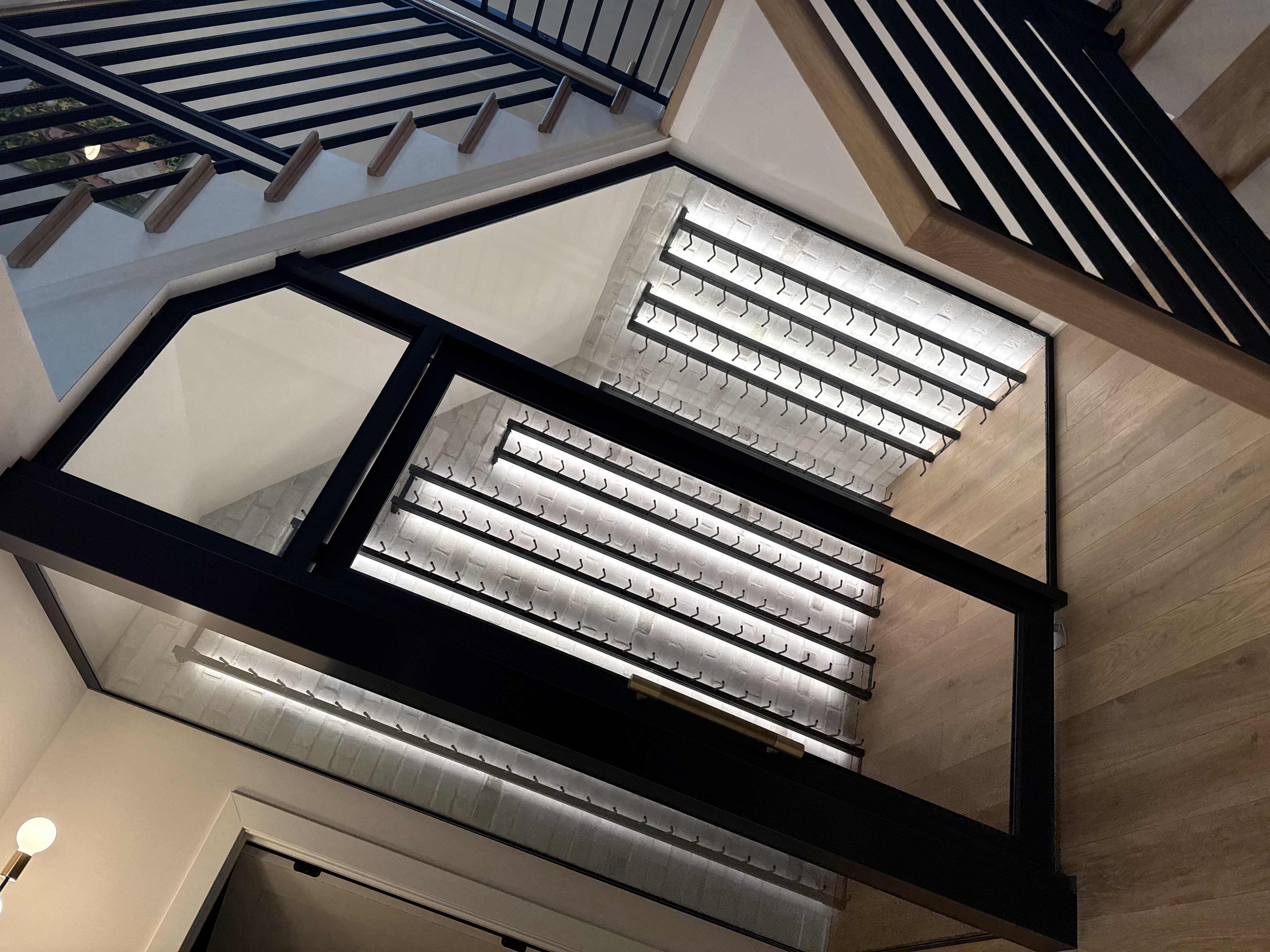August 25, 2025
Site Preparation and Foundation Planning for Custom Homes
Essential guide to site preparation and foundation planning including soil analysis drainage considerations and foundation types for custom homes.

Site preparation and foundation planning establish the literal foundation for successful custom home construction requiring careful analysis of soil conditions topography drainage and structural requirements. At Scheffer Construction with over 20 years of experience building exceptional custom homes we understand that proper foundation work prevents problems while supporting long-term structural integrity and performance.
Professional site preparation and foundation planning address unique site characteristics while optimizing construction efficiency and home performance. This comprehensive approach ensures foundations provide reliable support while contributing to energy efficiency moisture control and overall home quality.
Comprehensive site analysis provides essential information for foundation planning and construction approach selection. Professional site evaluation identifies opportunities and challenges that influence design decisions and construction methods.
Topographical survey provides detailed information about existing ground conditions including elevations slopes drainage patterns and existing vegetation. This information guides grading plans and foundation design while identifying potential challenges.
Soil analysis determines soil composition bearing capacity and drainage characteristics that directly affect foundation design and construction methods. Professional soil testing prevents problems while optimizing foundation specifications for site conditions.
Drainage assessment evaluates surface water management groundwater levels and potential flooding risks. Proper drainage planning prevents moisture problems while protecting foundation integrity and basement spaces.
Utility availability and access require coordination with service providers to ensure adequate capacity and convenient connections. Professional utility planning optimizes service connections while minimizing site disruption.
Environmental considerations include tree preservation wetland protection and erosion control measures. Professional environmental planning balances construction needs with environmental responsibility and regulatory compliance.
Professional soil testing provides critical information for foundation design and construction methods while identifying potential problems before they affect construction progress or costs.
Bearing capacity testing determines the soil's ability to support structural loads without excessive settlement. This information guides foundation size depth and reinforcement requirements while ensuring structural adequacy.
Soil composition analysis identifies soil types moisture characteristics and potential expansion or settlement issues. Understanding soil behavior helps select appropriate foundation types and construction methods.
Drainage characteristics testing evaluates soil permeability and water management requirements. This information guides drainage system design and waterproofing specifications while preventing moisture problems.
Chemical analysis identifies soil conditions that might affect concrete or other building materials. Certain soil chemicals can cause concrete deterioration requiring special protective measures or material specifications.
Foundation type selection depends on soil conditions site characteristics structural requirements and performance objectives. Professional foundation design optimizes structural support while addressing site-specific challenges.
Full basement foundations provide maximum living space utility access and storage capacity while requiring careful waterproofing and drainage design. Basements work well with stable soils and adequate drainage conditions.
Crawl space foundations offer utility access and ventilation benefits while providing cost-effective structural support. Crawl spaces require proper ventilation moisture control and insulation for optimal performance.
Slab-on-grade foundations provide economical construction with excellent thermal mass properties while requiring careful site preparation and drainage design. Slab foundations work well with stable soils and proper drainage.
Specialty foundations including pier and beam systems may be required for challenging site conditions or unique structural requirements. Professional engineering ensures specialty foundations meet structural and performance requirements.
Comprehensive drainage and waterproofing planning prevents moisture problems while protecting foundation integrity and basement spaces throughout the home's life.
Surface drainage directs rainwater away from foundation areas preventing soil saturation and hydrostatic pressure buildup. Professional grading and drainage systems protect foundations while maintaining attractive landscaping.
Subsurface drainage systems including drain tiles and sump pumps manage groundwater and prevent basement flooding. Professional drainage design addresses site-specific conditions while ensuring reliable performance.
Waterproofing systems create barriers against moisture penetration while allowing foundation walls to breathe properly. Professional waterproofing selection addresses exposure conditions while ensuring long-term effectiveness.
Drainage maintenance access ensures systems remain functional throughout the home's life while providing convenient service access. Professional design includes cleanouts inspection access and maintenance considerations.
Professional excavation and site preparation create optimal conditions for foundation construction while protecting existing site features and utilities.
Excavation planning coordinates soil removal equipment access and material management while protecting adjacent properties and utilities. Professional excavation contractors understand safety requirements and efficient work methods.
Soil stabilization may be required for challenging soil conditions or when excavation encounters unexpected conditions. Professional stabilization methods ensure adequate bearing capacity while preventing settlement problems.
Utility protection during excavation prevents damage to existing services while ensuring safe working conditions. Professional excavation includes utility location marking and protective measures throughout the work area.
Access planning ensures construction equipment can reach work areas efficiently while minimizing site disruption. Professional planning optimizes equipment movement while protecting finished site features.
Professional foundation construction combines proper techniques quality materials and systematic quality control to ensure structural integrity and long-term performance.
Form work preparation creates accurate foundation shapes while ensuring proper concrete placement and finishing. Professional form work prevents problems while optimizing construction efficiency and quality.
Reinforcement placement provides structural strength while preventing cracking and settlement problems. Professional reinforcement installation follows engineering specifications while ensuring adequate concrete coverage.
Concrete placement requires proper mixing timing and finishing techniques to achieve design strength and durability. Professional concrete work ensures quality while meeting specification requirements.
Curing procedures protect concrete during strength development while ensuring optimal long-term performance. Professional curing methods prevent problems while optimizing concrete strength and durability.
Systematic quality control and inspection throughout foundation construction ensures compliance with specifications while preventing problems that could affect structural integrity or performance.
Pre-pour inspections verify form work reinforcement placement and preparation completeness before concrete placement. Professional inspections prevent problems while ensuring construction meets requirements.
Concrete testing verifies mix design strength development and quality control during placement. Professional testing ensures concrete meets specifications while providing documentation for project records.
Waterproofing inspection verifies proper installation and system completeness before backfilling operations. Professional inspection ensures waterproofing effectiveness while preventing future moisture problems.
Backfilling procedures protect foundation walls while ensuring proper drainage around foundation perimeters. Professional backfilling prevents damage while optimizing site drainage and landscaping preparation.
Foundation construction must integrate with mechanical electrical and plumbing systems while providing proper support for structural and architectural elements.
Utility penetrations require careful planning and sealing to maintain foundation integrity while providing necessary service connections. Professional utility integration prevents problems while ensuring system functionality.
Structural connections between foundations and framing systems ensure proper load transfer while providing stable support for the entire structure. Professional connections meet engineering requirements while optimizing construction efficiency.
Insulation and energy efficiency measures in foundation areas contribute significantly to home performance while preventing comfort problems and energy waste. Professional foundation insulation optimizes thermal performance.
Scheffer Construction provides comprehensive site preparation and foundation services throughout the greater metropolitan area combining technical expertise with systematic quality control to ensure optimal results.
Contact Scheffer Construction today to discuss site preparation and foundation requirements for your custom home project!
Visit www.SchefferHomes.com to learn more about our comprehensive foundation services and quality construction approach. Our experienced team ensures your custom home starts with the solid foundation it deserves.
Building solid foundations building lasting homes building your future - the Scheffer Construction promise.
